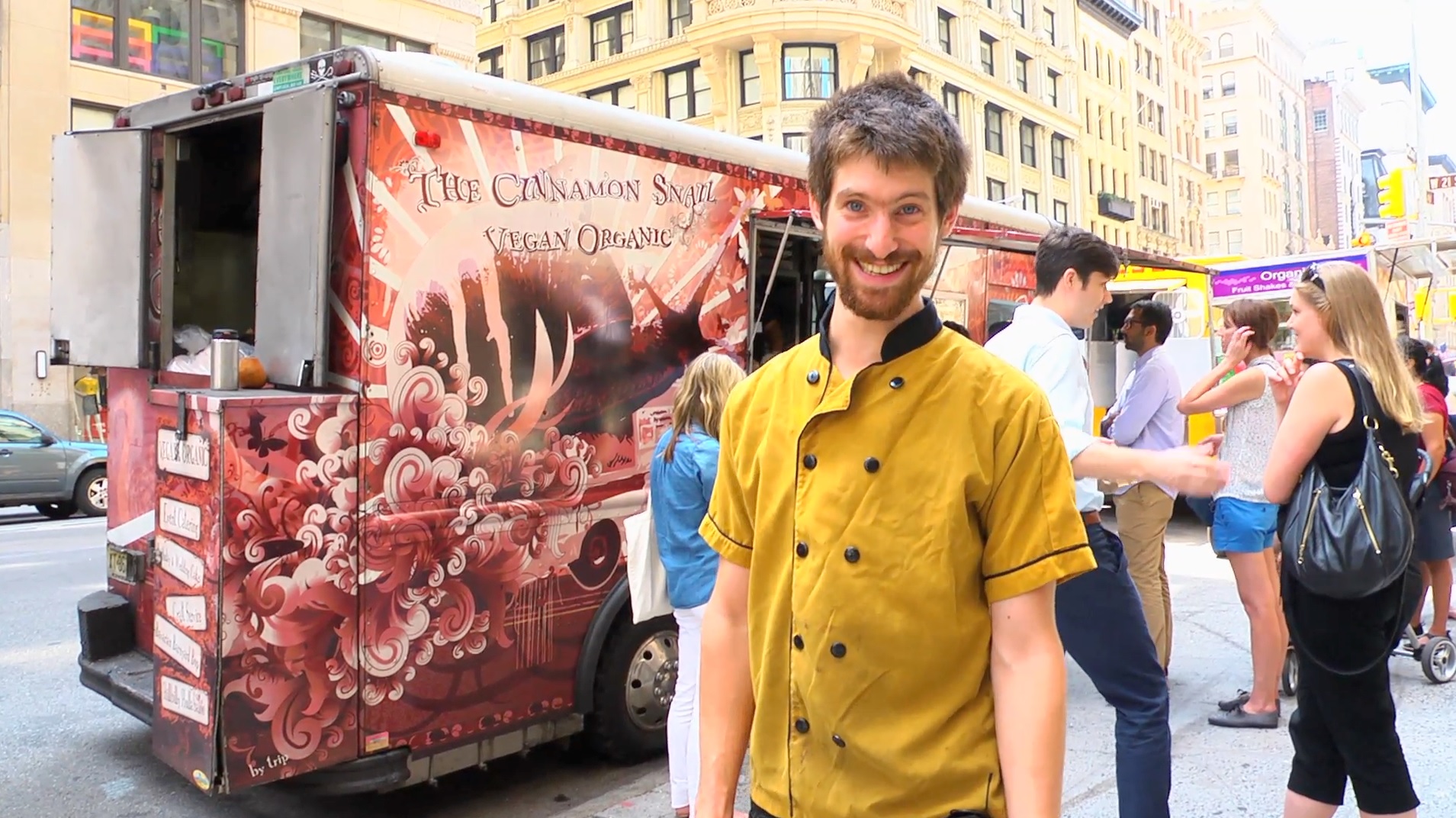NEW YORK, NY – Cinnamon Snail owner Adam Sobel learned on Friday that his last remaining vegan truck would cease serving its award-winning tempeh and tofu creations when access to his permit expires on February 28.
On Saturday he posted a message to Facebook equal parts celebration, eulogy, and sign of things to come. “We have thoroughly explored every possible way to continue having our truck(s) on the streets, but it’s time for a change for us,” Sobel’s message read. The sudden announcement came on the truck’s fifth anniversary, months after claiming the Vendy Cup at the Street Vendor Project’s annual awards on Governors Island, his fourth Vendy award for the creative organic cooking that’s become a staple of Manhattan’s midtown lunch scene (and will be the subject of Street Vegan, Sobel’s first cookbook, due out this May).
Sobel started his business in Hoboken in 2010, with only one truck, at a time when the mobile food scene was being quashed in its nascence by the city council. He sourced a permit to operate in New York City in December 2011, just as the Hoboken council voted to quintuple permit fees, relocate trucks away from restaurants, and require they be equipped with GPS devices so city agencies can monitor them.
“That’s why we initially opened in Hoboken,” Sobel told us. “It took us two years to find a permit. But that time really allowed us to smooth out a lot of the kinks. If we got a permit right away in New York, we wouldn’t have succeeded pulling off pretty massive lines so well.”
Acquiring a permit has its challenges: New York City has issued no new permits since 1981, and hasn’t added names to its waiting list since 2007. While most New Yorkers best know the Street Vendor Project as host of the Vendy Awards, which operates as the nonprofit’s largest annual fundraiser, its purpose is to offer free legal aid and lobbying power to a mostly immigrant community of working vendors who often acquire licenses from third parties representing absentee permit holders.
“They find people who want licenses and they match them up; it’s a business,” Street Vendor Project director Sean Basinski told us. “On one hand you can say they are doing a service — they are facilitating a market that exists. On the other hand, they’re exploiting hardworking people. It’s a perpetually broken system.”
Find the entire article at villagevoice.com <here>




